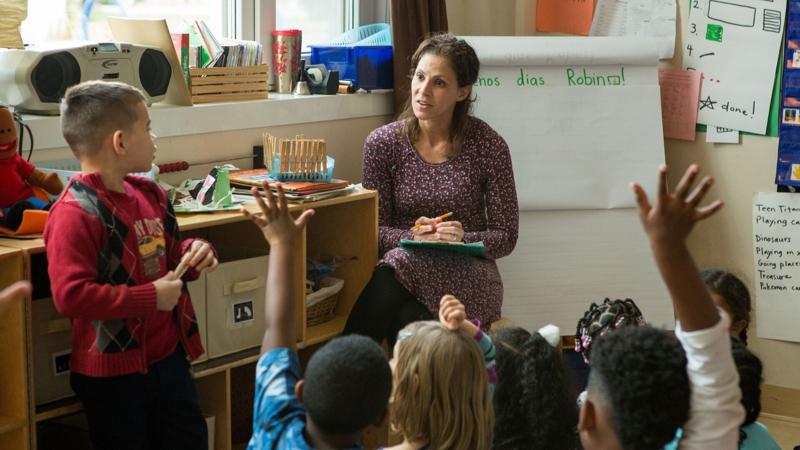(The Center Square) – A newly released survey shows that teachers continue to be in short supply in Illinois but conditions are improving.
The Illinois Association of Regional Superintendents of Schools partnered with Goshen Education Consulting and surveyed more than 750 school districts around the state regarding staffing numbers.
The survey found that more than 90% of schools said they have a teacher shortage problem, and that teacher shortages are the most severe in city districts, in vocational centers, and in more rural parts of the state, such as west-central, southwest and east-central Illinois. The number drops to as little as 20% of schools in some more affluent counties.
“It remains a persistent problem and it’s a problem throughout the state, more pervasive in some areas than others, but everybody recognizes that the issue exists,” said IARSS Executive Director Gary Tipsord.
The survey found that 73% of school leaders said half or less of their teacher candidates have the proper credentials for the position they are seeking.
Tipsord said allowing teachers to be more flexible has helped.
“A teacher who previously may not have been able to teach in a certain gray area is at least given an emergency credential so that they can,” said Tipsord.
A number of school leaders report that teacher shortages have eased following changes by the Illinois State Board of Education, including increasing the number of days retired educators and substitute teachers can be in the classroom.
The leading causes of teacher shortages vary across the state. Collectively, schools report they mostly see shortages from employee burnout and increased responsibilities, with teachers leaving for better pay in another career.
Tipsord said it will take more than a single entity to solve the problem.
“It is going to take a comprehensive effort to solve this long term,” said Tipsord. “Our school districts can’t solve it by themselves, higher ed can’t solve it by themselves, and the legislature can’t solve it by themselves, it is going to take a comprehensive effort of all parties coming together.”







